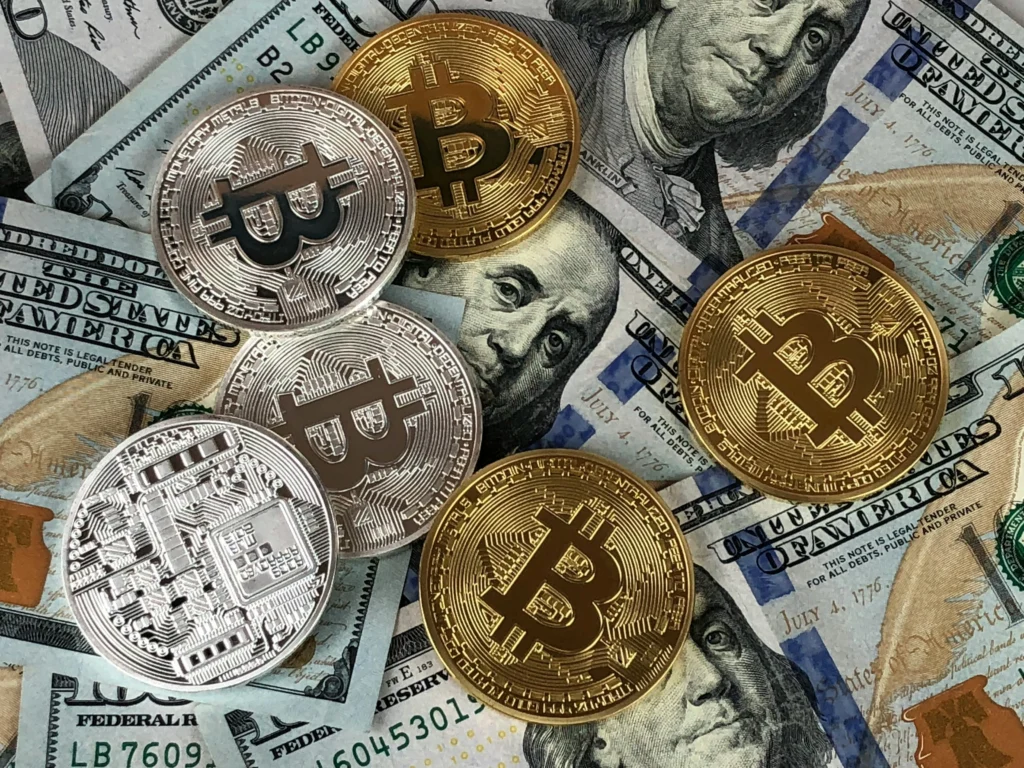Introduction
Cryptocurrency vs Forex: A Detailed Comparison
Cryptocurrency vs ForexAs the trading landscape continues to evolve many investors are looking into the distinction’s cryptocurrency and forex. Both markets present opportunities for substantial profits, yet each carries its own set of risks and. Whether you’re an experienced trader or just starting out, grasping the essential differences between these two markets is vital for making informed decisions. This guide will thoroughly explore cryptocurrency and forex, examining their trading mechanisms, volatility, market structure, and profit potential. By the end, you’ll have a better understanding of which market may align more closely with your trading style and investment objectives.

What Is Cryptocurrency Trading?
Cryptocurrency refers to a digital or virtual form of currency secured by cryptographic methods. Unlike traditional fiat currencies, cryptocurrencies function on decentralized networks utilizing blockchain technology. Well-known examples include Bitcoin (BTC), Ethereum (ETH), Ripple (XRP), and Litecoin (LTC).
How Does Cryptocurrency Trading Work?
Trading in cryptocurrencies involves the buying, selling, and holding of digital assets through platforms like Binance, Coinbase, or Kraken. In contrast to conventional markets, cryptocurrency markets are operational 24 hours a day, 7 days a week, allowing traders to open and close positions at any moment.
- Spot Trading: Directly purchasing or selling cryptocurrencies.
- Derivatives Trading: Utilizing contracts like futures and options to speculate on a cryptocurrency’s future price.
- Decentralized Exchanges (DEXs): Platforms enabling peer-to-peer transactions without intermediaries, differing from centralized exchanges.

Key Features of Cryptocurrency Markets:
- Decentralization: Operates on a blockchain framework without central authority, making it less susceptible to government control.
- Volatility: Prices can experience dramatic shifts, presenting opportunities for significant gains as well as risks of considerable losses.
- 24/7 Operation: Markets remain open at all times, benefiting traders in various time zones, yet potentially causing sleepless nights.
What Is Forex Trading?
Forex, or Foreign Exchange, involves the trading of currencies from across the globe. It stands as one of the largest and most liquid markets worldwide, boasting a daily trading volume exceeding $6 trillion. The forex market functions through a global network of banks, brokers, and financial institutions, making it both decentralized and heavily regulated.
How Does Forex Trading Work?
Forex trading consists of buying and selling currency pairs, like EUR/USD (Euro to US Dollar) or GBP/JPY (British Pound to Japanese Yen). Traders speculate on the fluctuations in value between two currencies.
- Major Currency Pairs: EUR/USD, USD/JPY, GBP/USD, and others.
- Cross Currency Pairs: Currency pairs excluding the US dollar, such as EUR/GBP.
- Exotic Currency Pairs: Combinations that feature one major currency alongside one from a smaller or developing market, like USD/TRY (US Dollar to Turkish Lira).
Key Features of Forex Markets:
- Liquidity: High daily trading volumes result in deep liquidity, allowing for the execution of large trades without significantly changing prices.
- Leverage: Traders frequently utilize leverage to enhance their exposure, which can amplify both profits and losses.
- Market Hours: Forex trading is accessible 24 hours a day, five days a week, divided into key trading sessions (New York, London, Tokyo).
Cryptocurrency vs Forex: Market Differences
Understanding the fundamental differences between the markets of cryptocurrency and forex is essential for determining which suits your needs. Here, we outline the primary contrasts.
3.1 Market Size and Liquidity
- Forex Market: The forex market is significantly larger than the cryptocurrency market, with daily volumes exceeding $6 trillion, ensuring high liquidity and facilitating large trades without price disruption.
- Cryptocurrency Market: Despite reaching trillions in total market capitalization, cryptocurrencies generally have lower liquidity compared to forex. Liquidity can vary widely across different cryptocurrencies, with Bitcoin and Ethereum being the most liquid options.
3.2 Volatility
- Forex Market: While forex markets can experience volatility, they tend to be more stable than cryptocurrency markets. Major pairs like EUR/USD typically display low volatility, appealing to those who are risk-averse.
- Cryptocurrency Market: Known for extreme volatility, cryptocurrency prices can fluctuate dramatically within short periods, creating high-risk, high-reward trading scenarios. For instance, Bitcoin has been known to move over 10% in a single day.
3.3 Regulation and Security
- Forex Market: The forex market is subject to regulation by financial authorities like the Commodity Futures Trading Commission (CFTC) in the U.S., promoting transparency and security for traders.
- Cryptocurrency Market: Regulatory conditions for cryptocurrencies vary significantly. Some nations embrace these digital assets, while others impose restrictions or outright bans. Concerns regarding security, such as exchange hacks and scams, are more common in the crypto sector.
Cryptocurrency vs Forex: Pros and Cons
4.1 Advantages and Disadvantages of Cryptocurrency Trading
- Advantages:
- High volatility presents ample profit opportunities.
- Continuous market access enables trading at any time.
- The potential for substantial gains from innovative projects and technologies.
- Disadvantages:
- Severe volatility can lead to quick financial losses.
- Regulatory ambiguity in many jurisdictions.
- Increasing susceptibility to cyberattacks and scams.
4.2 Advantages and Disadvantages of Forex Trading
- Advantages:
- High liquidity and vast market size.
- A regulated framework adding a layer of security.
- Leverage allows traders to manage larger positions with lesser capital.
- Disadvantages:
- Reduced volatility can hinder profit opportunities for day traders.
- Leverage can also exacerbate losses.
- Weekend market closures restrict trading options.
Which Is More Profitable: Cryptocurrency vs Forex?
Determining the more profitable market hinges on your trading style, risk tolerance, and investment objectives.
- For Risk-Averse Traders: Forex may present a better choice due to its stability and decreased volatility, particularly when focusing on major currency pairs.
- For Risk-Tolerant Traders: Trading in cryptocurrencies may provide higher upside potential due to increased volatility, but this also carries the risk of substantial losses.
- For Long-Term Investors: Many perceive cryptocurrencies like Bitcoin as a digital form of gold, while forex trading often suits those with a short-term speculative strategy.
The Future of Cryptocurrency vs Forex Markets
- Cryptocurrency Adoption: With institutional investors and corporations like Tesla and MicroStrategy entering the cryptocurrency arena, digital assets are gaining traction and legitimacy. This trend could result in increased stability and wider acceptance over time.
- Forex Market Evolution: As emerging markets grow in influence, the forex market will remain a vital part of the global economy. The advent of digital currencies by central banks (CBDCs) may also impact the forex landscape.

